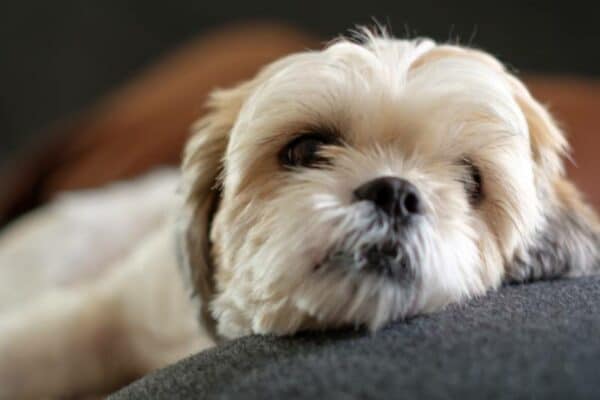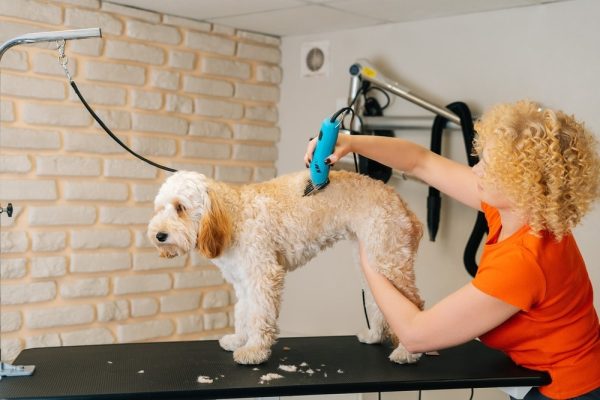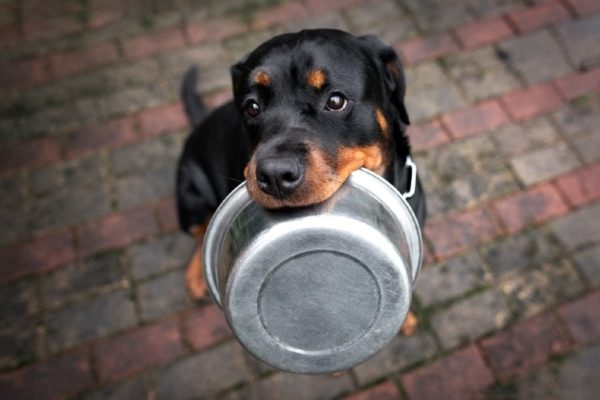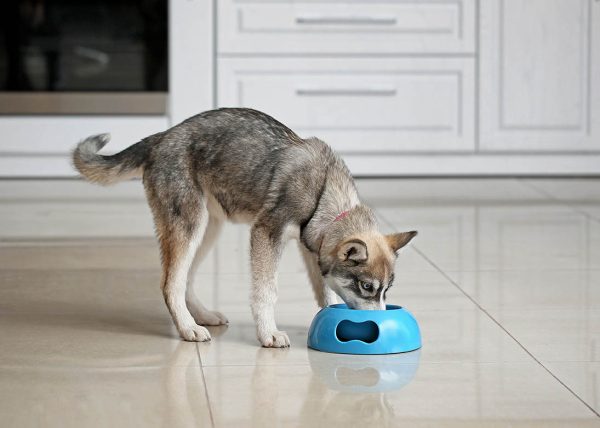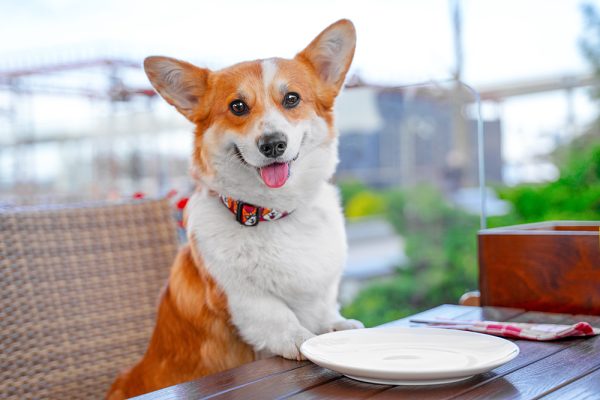In this article
View 3 More +Both the Beagle and Basset Hound are popular dogs that belong in the hound group. They share some physical appearances that are hallmark characteristics of scent hounds, such as long, droopy ears and tri-colored coats. They were also both bred for hunting purposes, so they tend to enjoy being outside and exploring the grounds.
Despite their similarities, these dogs are still two very distinct breeds. We can’t say that one breed is better than the other because they both have wonderfully unique traits and temperaments. When they meet the right owner, their finest qualities will shine through, and they can become some of the most loyal pets that one can find.
Let’s take a closer look at each breed. By the end, you will be able to determine which breed is right for you.

Visual Differences

At a Glance
- Average height (adult): 13 – 15 inches
- Average weight (adult): 20 – 30 pounds
- Lifespan: 10 – 15 years
- Exercise: 1+ hours a day
- Grooming needs: Minimal
- Family-friendly: Yes
- Other pet-friendly: Good with other dogs but has a strong prey drive
- Trainability: Intelligent but willful
- Average height (adult): 11 – 15 inches
- Average weight (adult): 44 – 75 pounds
- Lifespan: 12 – 13 years
- Exercise: 1+ hours a day
- Grooming needs: Minimal
- Family-friendly: Yes
- Other pet-friendly: Good with other dogs but has a strong prey drive
- Trainability: Intelligent but willful

Beagle Overview
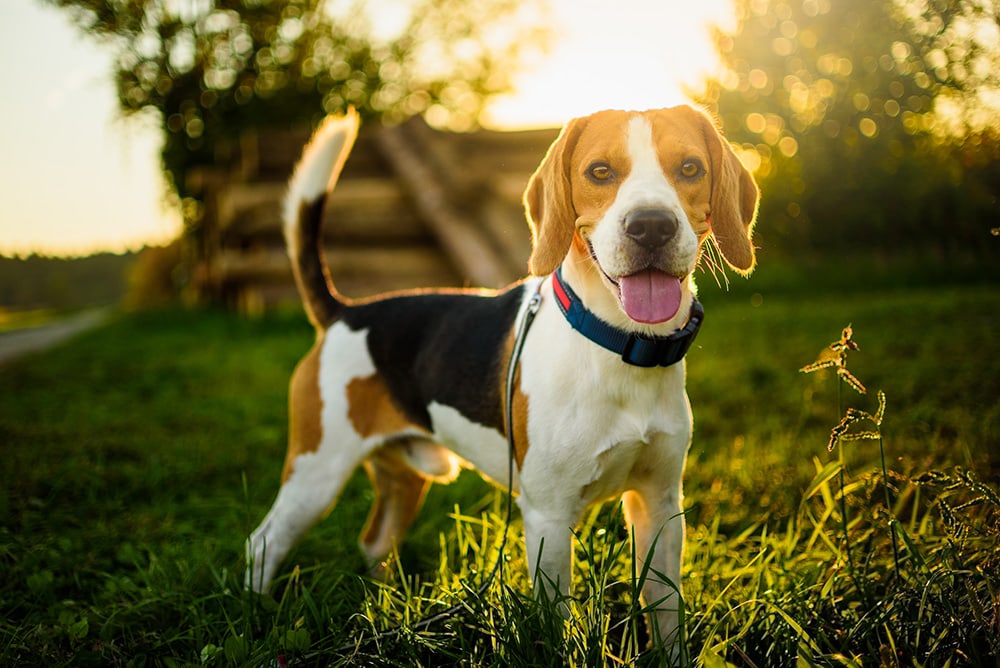
Personality / Character
Beagles are intelligent and curious dogs with high energy levels. Originally bred as scent hounds, Beagles tend to love spending a lot of time outdoors and will typically enjoy hikes and swimming. While they may not be the most athletic, they still need plenty of exercise and mental stimulation to keep them happy. They love to sniff and follow scents, so they’ll enjoy puzzles and games that encourage sniffing and foraging.
Beagles aren’t known to be the most affectionate dogs, so it is unfair to expect them to be lap dogs. However, they’re very loyal, so once they bond with their owners, they’ll show their love and devotion in their own unique way.
Exercise
Beagles aren’t the most active dogs, but they still have plenty of energy. They’ll do best with a mix of physical exercise and enrichment activities that stimulate their strong nose. Most adult Beagles will be happy with about an hour of exercise daily, and they’ll love having play sessions with you throughout the day.
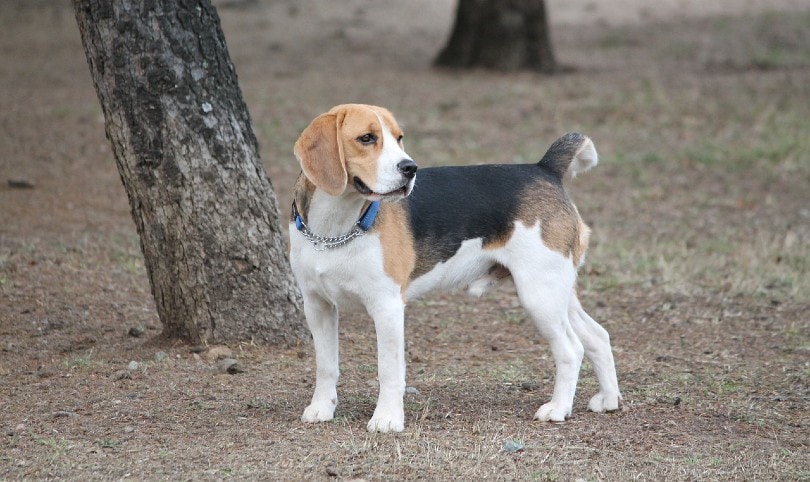
Training
Beagles tend to get bored quickly and can develop behavioral issues, such as barking and howling, and destructive behavior. This isn’t because they’re bad dogs. They’re just active and need a lot of mental stimulation.
So, Beagles aren’t recommended for first-time dog owners because they can have a stubborn streak. It can be challenging to house train Beagles because of their independent personalities. They also have a strong prey drive and can quickly develop leash-pulling and lunging habits.
Therefore, training sessions for Beagles need to be fun, short, and consistent. It’s best to start training as early as possible with Beagle puppies. It doesn’t hurt to enlist the expertise of a dog trainer or attend obedience training classes to ensure that your relationship with your Beagle has a strong foundation.
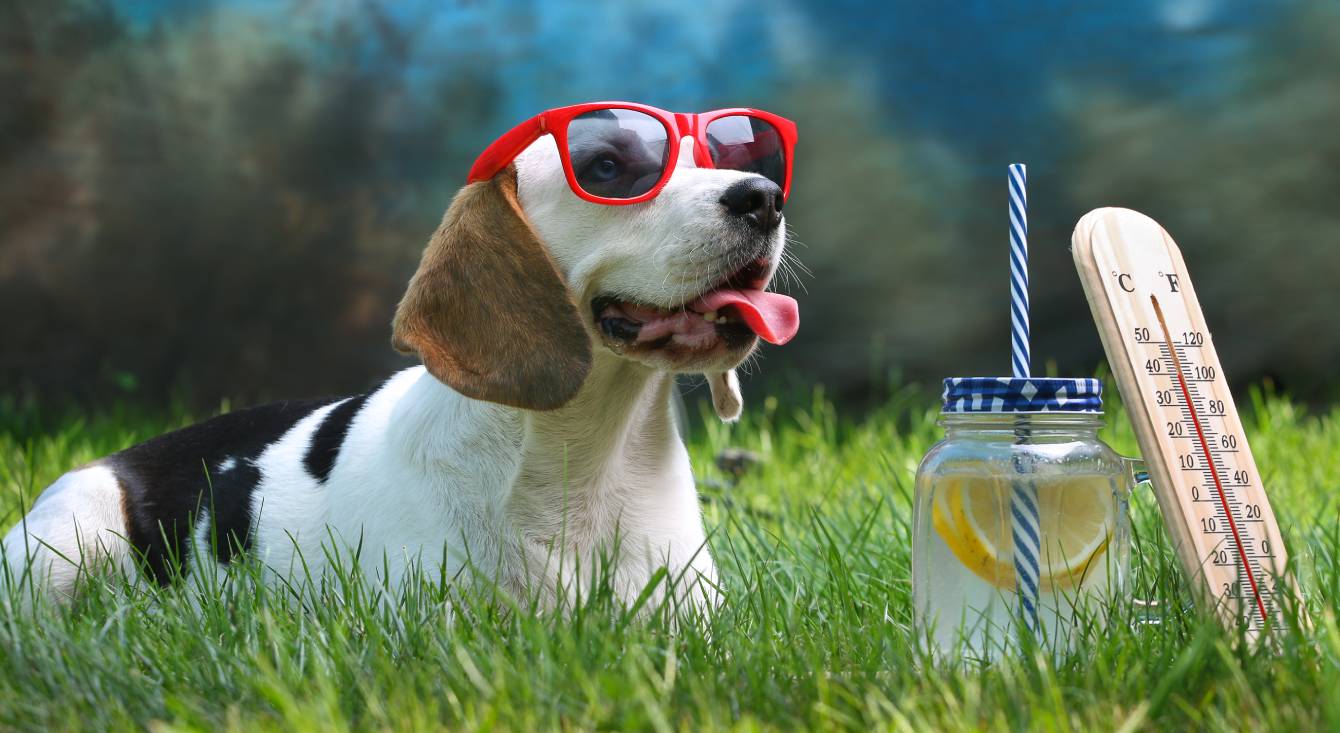
Grooming
Beagles have short coats that require minimal grooming. You can use a bristle brush to brush off loose hairs and reduce shedding around the house. They don’t require too many baths, and you can schedule baths any time its coat starts to smell or feel greasy.
The Beagle’s floppy ears can trap moisture, which can cause ear infections. So, make sure to check the ears and clean them regularly. An ear cleanser will help to regulate moisture in the ear and remove dirt and wax buildup.
Regarding genetic health concerns, Beagles are fortunately relatively healthy dogs.
- Cherry eye
- Glaucoma
- Hypothyroidism
- Patellar luxation
- Primary carnitine deficiency (CUD)
Suitable for:
Beagles are excellent family dogs. They tend to play well with children and other dogs, but early socialization is essential to help Beagles learn to play nicely with others. Children should also learn how to handle and touch Beagles properly, and early interactions must be supervised. As hounds, these dogs have a strong prey drive, so they may never learn to be fully trusted around cats and small pets.
With all these things in mind, the Beagle is best suited for experienced dog owners with the time and capacity to provide proper training and exercise opportunities. They’re great for outdoorsy people who can take their dogs on hunts or hiking trips.

Basset Hound Overview
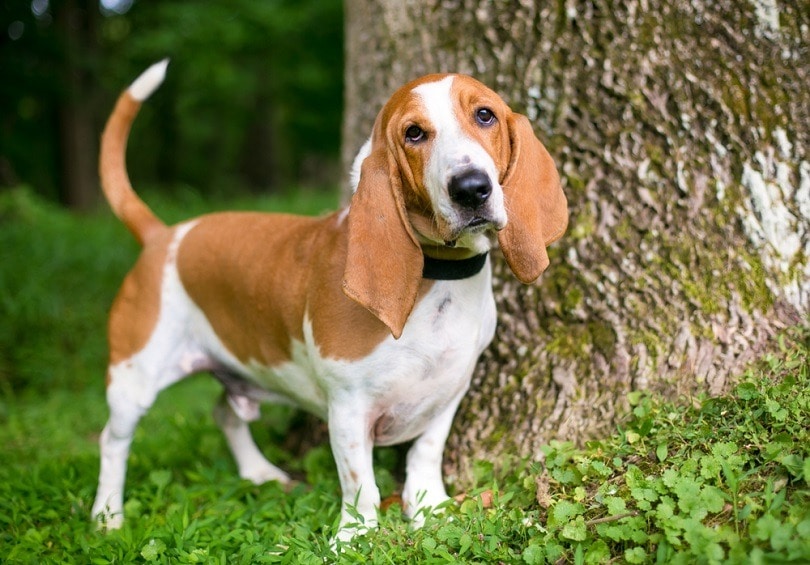
Personality / Character
Basset Hounds tend to be gentler than other hound breeds. They’re generally easygoing and very good with kids and other dogs. However, they can have a strong prey drive, so early socialization with other animals is critical. Basset Hound owners must also face the reality that their dog may never be fully trusted to be alone or unsupervised with small pets.
This dog breed is built to pick up scents and is an excellent scent hound. Their stout build makes it easy for them to sniff around, and their wrinkles and long ears help to trap scents. These features make them fun outdoor dogs, and they’ll also appreciate and love playing games and puzzles that involve a lot of sniffing and tracking.
Exercise
Basset Hounds have slightly lower energy levels than Beagles. They’re not as dynamic, but they still require at least an hour of exercise a day. They probably won’t be zooming around your backyard at high speeds. Instead, mild walks with plenty of stops to sniff around will be plenty of exercise for them. While all dogs explore the world through their nose, Basset Hounds in particular enjoy snooping and foraging activities.
Consistent exercise is essential for this dog breed because it’s prone to obesity. So, on top of daily walks, hiding food and treats around the house for them is another excellent way to keep them active and exercise their scent hound instincts.
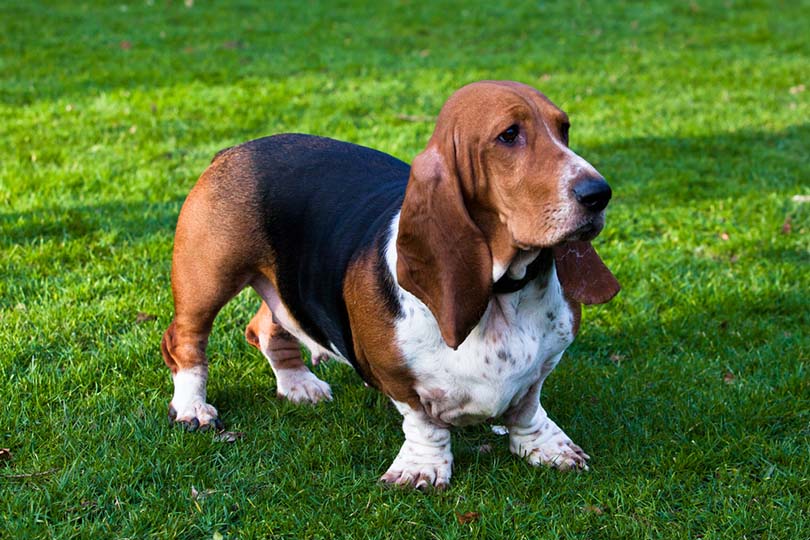
Training
Like most hounds, Basset Hounds also have a stubborn streak. They’ll need firm and consistent training that’s also fun and engaging. They can also grow to become very loyal companions, so establishing a solid bond with them is extremely important. By making training sessions into a bonding experience, Basset Hounds will become easier to train over time.
Since Basset Hounds have short legs, long backs, and heavy bodies, they shouldn’t be trained for vigorous, high-impact sports and activities. While they’re capable, these activities can be detrimental to their health in the long run. They can experience back pain as they get older and suffer from spinal injuries.
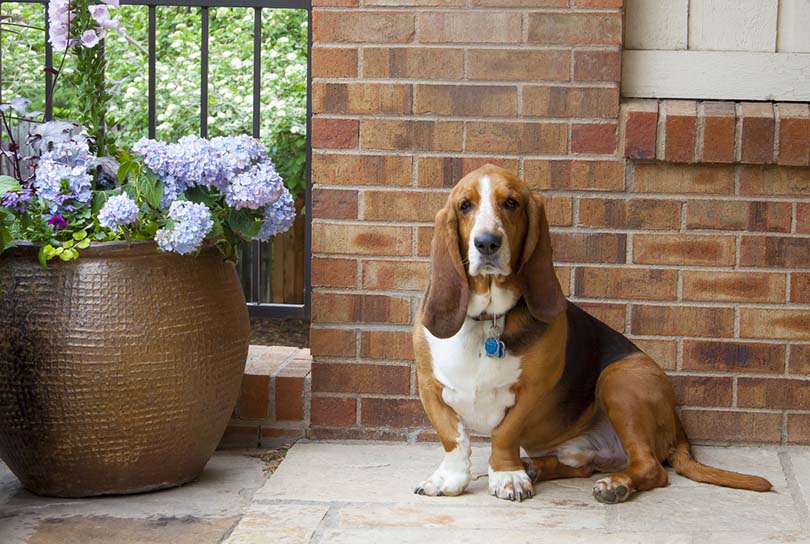
Grooming
Basset Hounds have slightly more grooming needs than Beagles. They have similar coats, so Basset Hounds will also do well with getting groomed with a bristle brush and having the occasional bath. Basset Hounds have even longer ears than Beagles, making them more susceptible to ear infections.
They also have more wrinkles, and it’s important to clean and wipe between the wrinkles, especially after meals. Food and drool can get trapped between the wrinkles, which can cause odor and skin infections.
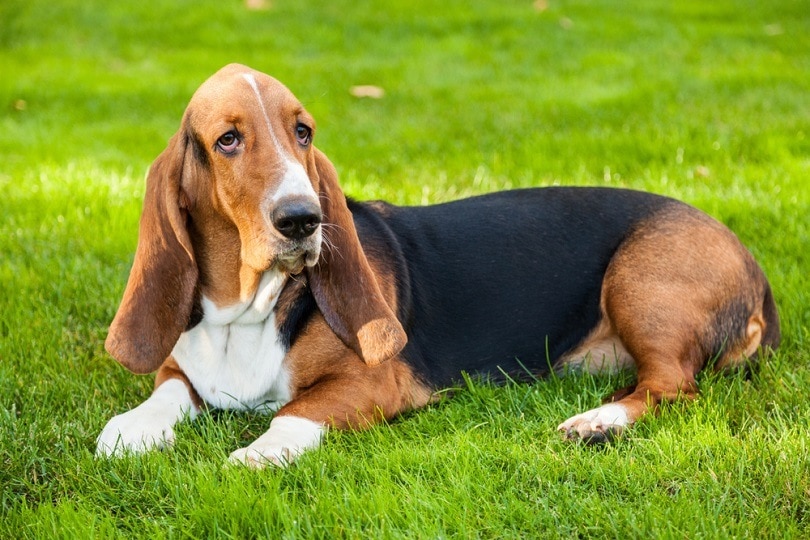
Health
Basset Hounds are slightly more prone to developing major health conditions than Beagles. One key factor that owners must stay on top of is their weight. Basset Hounds already have a heavy build, so adding more weight will strain their back and cause joint issues.
- Elbow dysplasia
- Entropion
- Otitis externa
- Patellar luxation
- von Willebrand’s Disease (vWD)
Suitable for:
Basset Hounds don’t have as much energy as Beagles do, but they still need a decent amount of exercise. So, they’re great companions for people who enjoy taking leisurely strolls with many stops.
These dogs were also bred as pack dogs, so they’re more social and tend to do well in large families or homes with other dogs. They don’t do well being left alone for long hours, so they’re not the best fit for people with busy lifestyles and who are often out of the house.

Which Breed Is Right for You?

Overall, Beagles and Basset Hounds share a lot of similarities. They’re loyal and devoted family dogs while also having a goofy side. Beagles tend to require more training and do best with experienced dog owners. Basset Hounds are more easy going and laid back, but they have slightly more grooming and health needs.
So, if you have a more active lifestyle, can devote a lot of time to training, and are looking for a loyal companion dog to take with you on your outdoor adventures, the Beagle is a considerable match. If you’re looking for a family dog and usually have someone that’ll be at home, the Basset Hound can be a great addition to your family.
See also:
- Dachshund vs. Basset Hound: Which One Is Right for Me?
- Basset Hound vs Bloodhound: Notable Differences (With Pictures)
Featured Image Credit: Top – Luke MacGillivray, Unsplash | Bottom – Ernest_Roy, Pixabay








